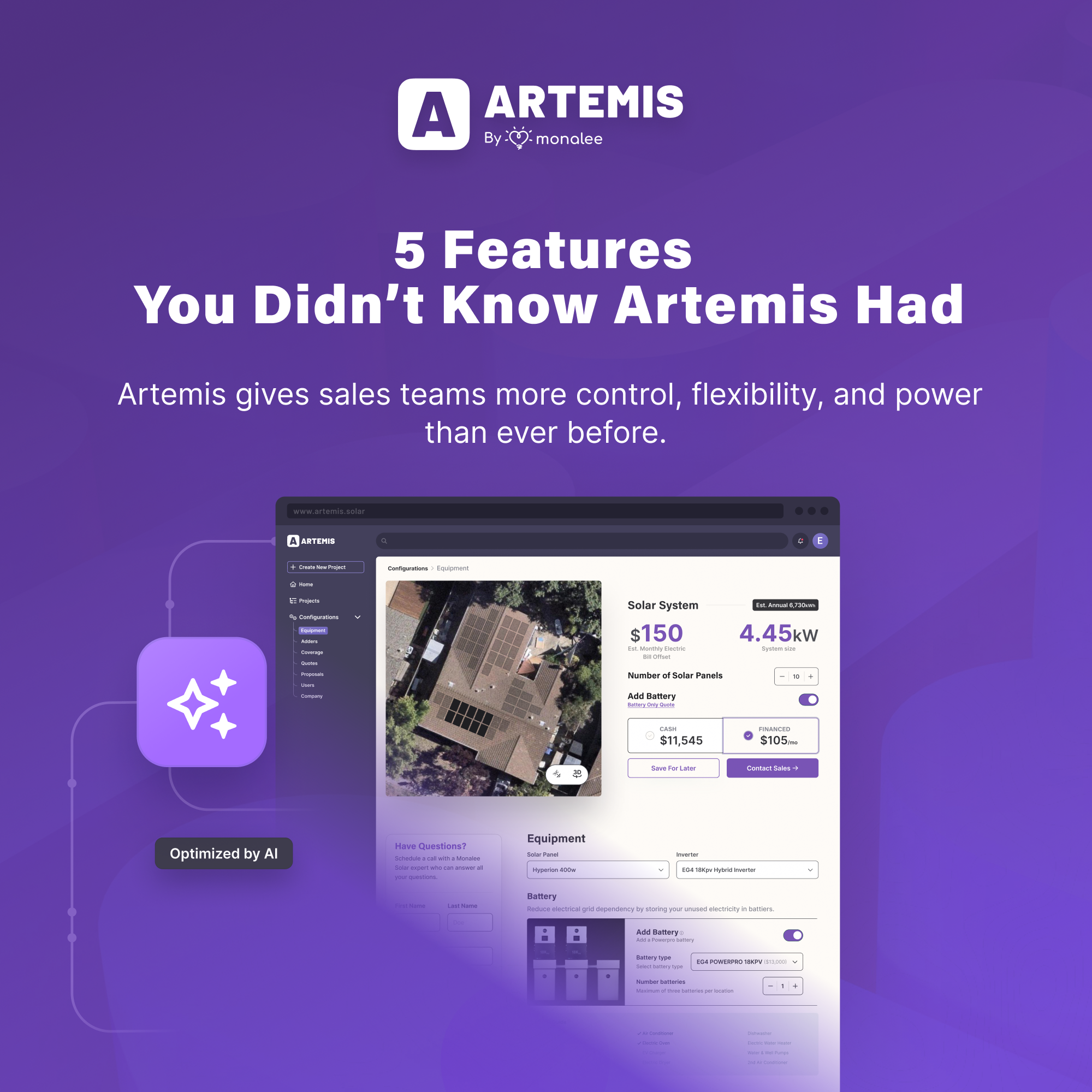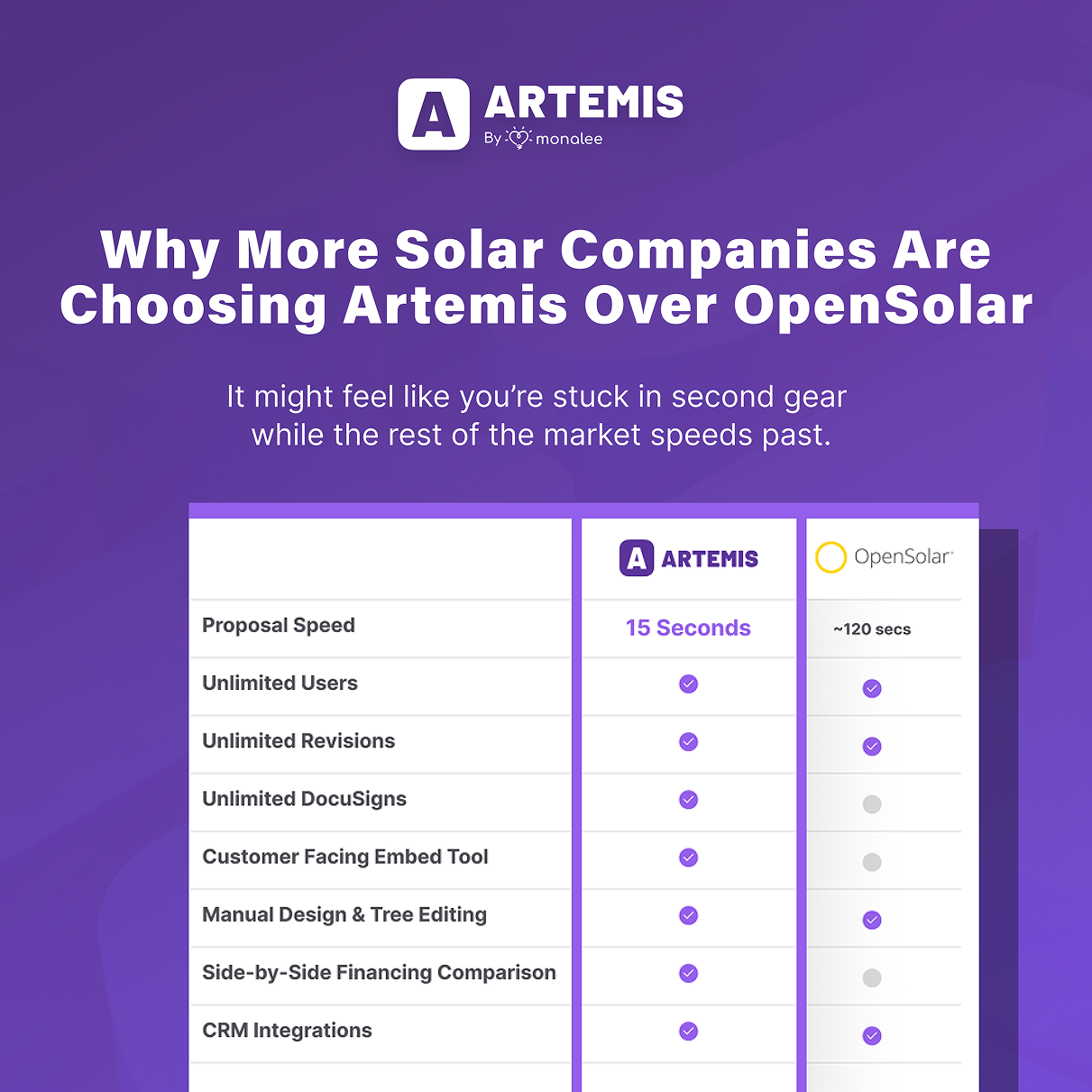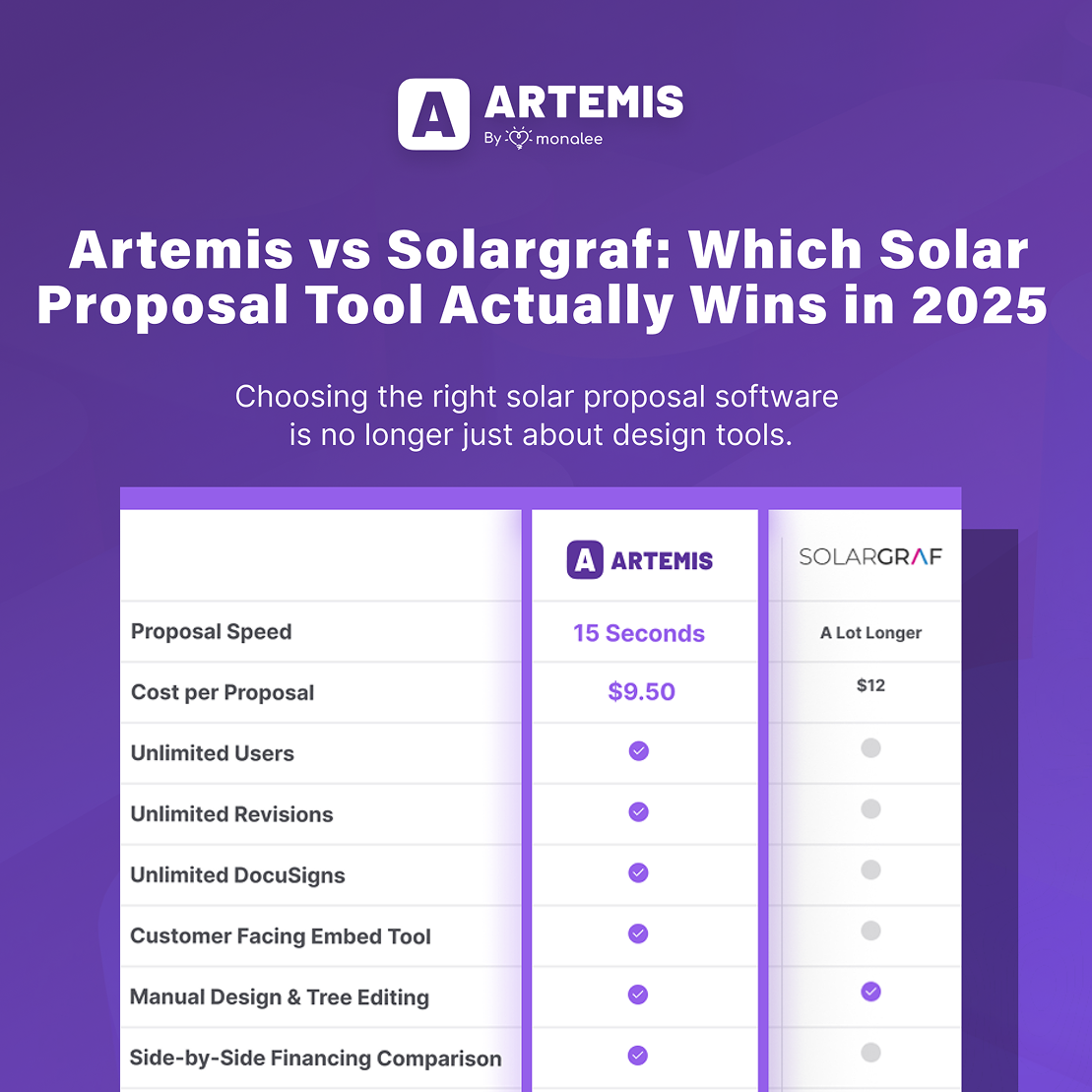When most people think of Artemis, they picture lightning fast solar proposals: 15 second, AI generated designs with financing, pricing, and contracts all in one place. But beneath that speed lies a deep toolkit of flexible, customizable features that most teams don’t realize they already have access to.
Here are five lesser known capabilities inside Artemis that give sales teams more control, flexibility, and power than ever before.
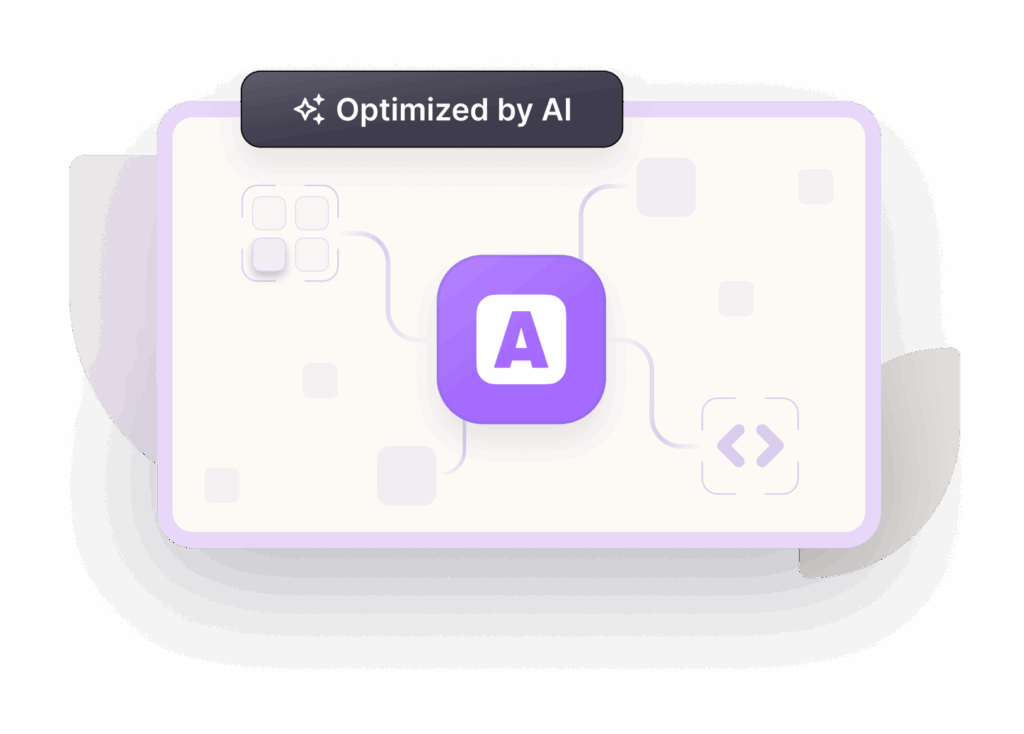
1. Add, Edit, or Remove Equipment Instantly
Artemis lets you modify your equipment catalog in real time with no dev team required. Through the management dashboard, admins can:
- Add new panels, batteries, or inverters
- Adjust pricing and availability by region or rep gro
up - Remove outdated SKUs or hide experimental products
This flexibility allows companies to adapt quickly to supply shifts or new manufacturer releases, keeping every proposal accurate and up to date.
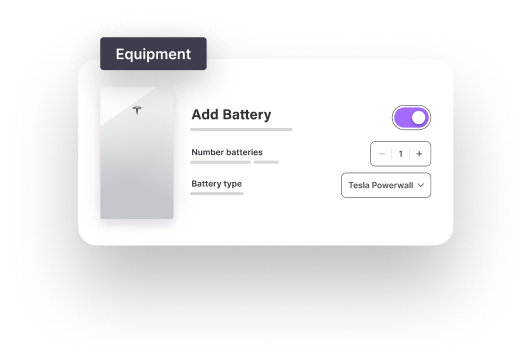
2. Real Time Pricing Updates Across the Org
Say goodbye to emailing spreadsheets. Artemis’s dynamic pricing engine updates every active proposal the moment a pricing rule changes. Whether it’s adjusting module costs, labor, or margin, the new pricing flows through instantly across your sales network.
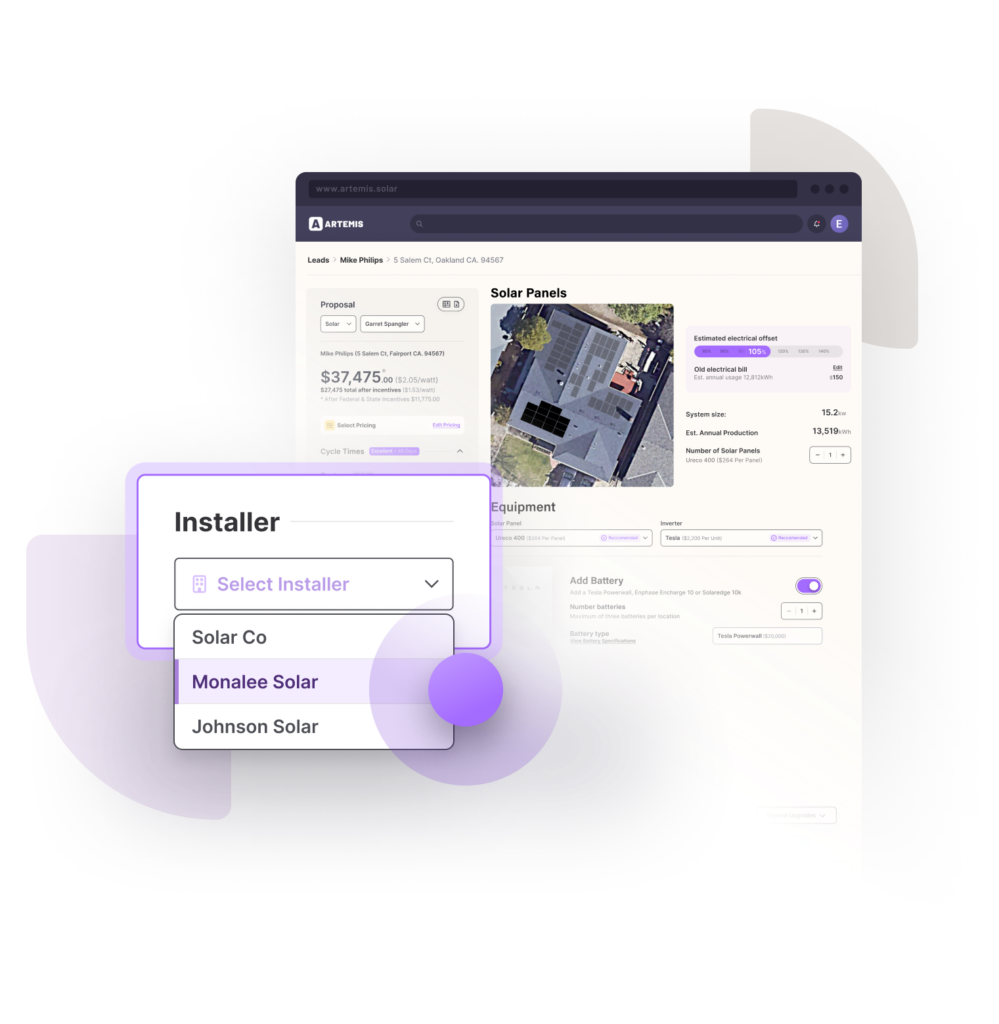
3. Full API Access for Seamless Integrations
Behind Artemis’s clean interface is a powerful API-first architecture. You can push and pull proposal data between Artemis and your CRM, ERP, or custom dashboards.
Integrations include:
- Salesforce, HubSpot, and JobNimbus
- NetSuite and Microsoft Teams
- Zapier for automating data flows or notifications
This API flexibility gives larger sales orgs the ability to embed Artemis into any workflow, from marketing funnels to fulfillment logistics.
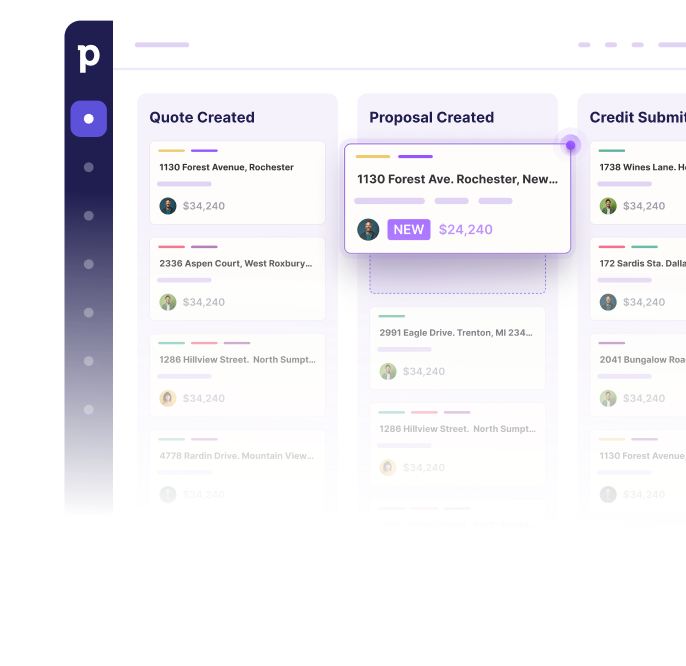
4. Easily Add Ground Mounts to Any Proposal
Artemis now supports ground mount configurations directly within your proposal flow—no workarounds or offline edits needed. Whether you’re quoting for residential backyards, rural properties, or larger land parcels, your reps can add a ground mount system with just a few clicks. You can customize setbacks, tilt, and orientation, then instantly generate a polished, accurate proposal that reflects the full cost and layout of the ground installation. It’s seamless, fast, and built for teams quoting both rooftop and non-rooftop systems.
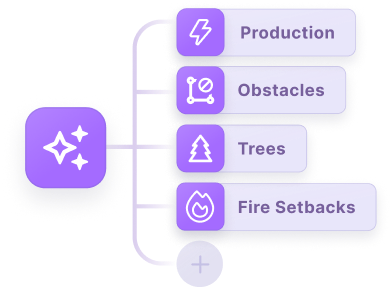
5. Add, Remove, or Change the Height of Trees
Yes, Artemis lets you literally move trees.
The platform’s manual design mode enables reps to add or adjust tree height, reposition obstacles, and instantly see shading changes and production impact. What used to require sending designs back to engineering now happens live during a homeowner presentation.
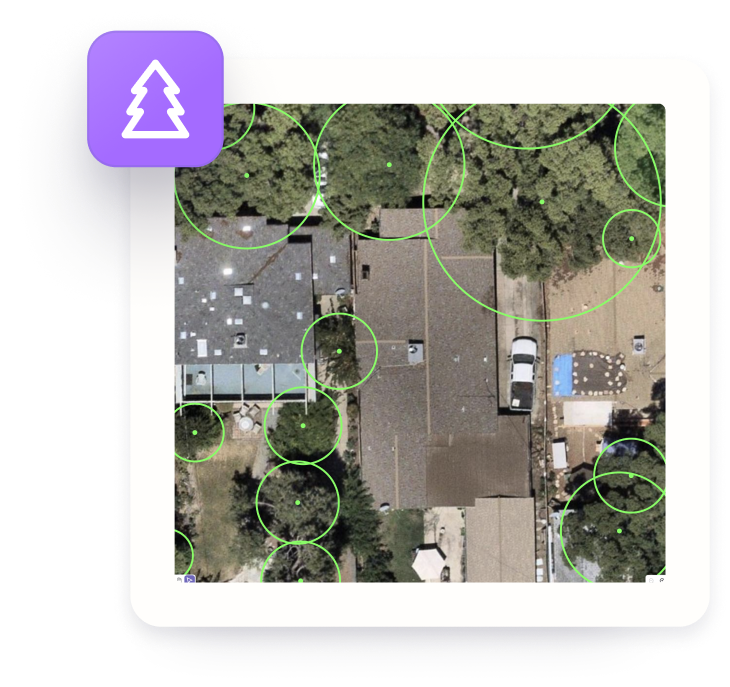
And Many More
While Artemis is best known for its speed, its real power lies in control. From real time pricing to editable tree shading, the platform puts both precision and adaptability in the hands of every sales team—no waiting, no resubmissions, no bottlenecks.
In a market where accuracy and agility define the winners, these hidden features quietly separate fast moving solar companies from everyone else.

